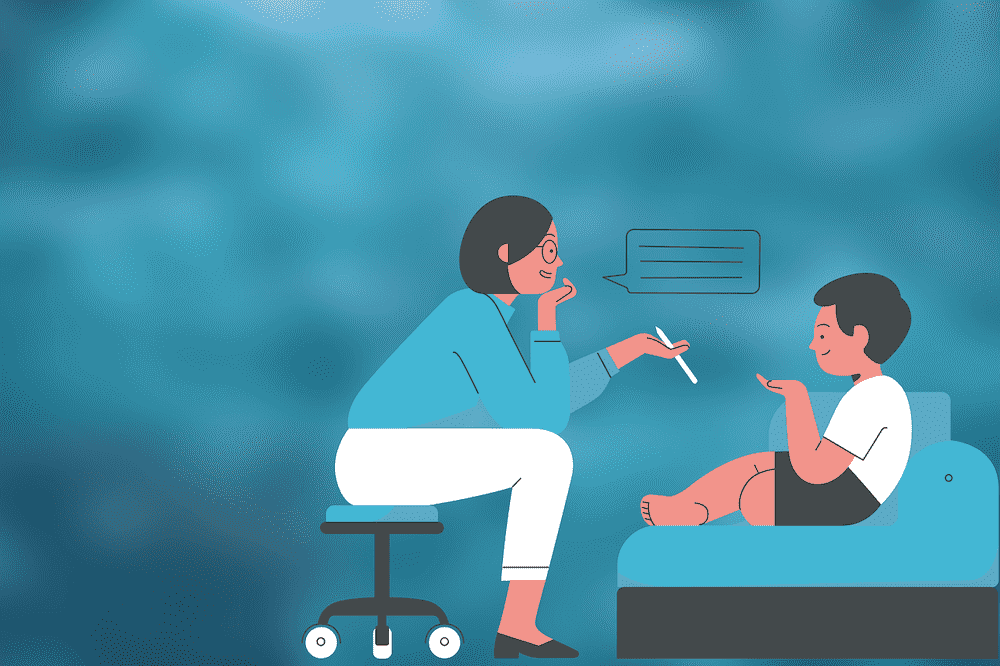Do you have a child with ADHD? If so, you know it can be challenging to keep them focused and on track. But don’t despair – there are ways to help your child succeed. This blog post will share some tips on caring for a child with ADHD. From establishing routines to knowing when to seek professional help, it’ll cover everything you need to know to help your little one thrive. So read on, and get ready to learn how to care for a child with ADHD like a pro.
Establish a daily routine and stick to it as much as possible
Establishing a daily routine for a child with ADHD can be incredibly beneficial and critical to providing care. Creating structure and predictability in their lives helps reduce the fear of the unknown that these children, who thrive on structure, feel. Having a plan and sticking to it as much as possible will help keep a child with ADHD focused, motivated, organized, and successful. The personal recovery assistants from HiredPower.com suggest that in establishing a routine, you start with the basics: set a regular bedtime and wake-up time, plan meals and snacks ahead of time, and build plenty of physical activity. This is similar to what those recovering from mental illnesses and addiction need. It’s important to remember to be flexible while still reinforcing the boundaries that have been set. Children who struggle with their focus often need more reminders or redirection. An established daily routine sets up success for both the parent and child.
Provide structure and limits
Taking care of a child with ADHD can be a challenging task. Having structure and limitations in the home, such as regular bedtimes, meals, and activities, can provide children with ADHD with a sense of security that can help to keep them emotionally regulated and focused. However, having too rigid of a structure can be counterproductive. When needed, it is essential to be flexible to create an environment that is supportive and understanding. Children with ADHD often experience increased anxiety in unfamiliar or unpredictable situations, so their caregivers must be able to adjust accordingly. Practicing mindfulness and patience when taking care of a child with ADHD will help to build trust between caregiver and child while still providing the necessary structure for healthy development.
Encourage healthy eating habits and regular exercise.
The importance of healthy eating habits and regular exercise for children with ADHD cannot be overstated. Proper nutrition and exercise can help foster concentration, focus, and problem-solving skills. For example, studies have demonstrated that a diet consisting of complex carbohydrates such as whole grains, fruits, and vegetables has positively affected attention deficit behaviors. Additionally, regular activity helps keep the child’s body balanced in terms of energy-controlling hormones but also helps stimulate growth in areas that support cognitive processes like memory and concentration. Encouraging healthy eating habits and regular physical exercise is vital to caring for a child with ADHD.
Be patient, understanding, and consistent.
While it takes significant patience, understanding, and consistency to effectively care for such a child, by doing so, you can provide them with the tools to help better manage their disorder. Start by listening to your child and having an honest dialogue about what they need to feel supported. Proper diagnosis and treatment will ensure your child receives the most comprehensive care possible. Although it may require extra effort on the part of everybody involved, showing compassion and understanding goes a long way in caring for a child with ADHD.
Reward good behavior
The best way to encourage positive actions when caring for a child with ADHD is by rewarding good behavior. Reinforcing expected behaviors can be a powerful change agent and help create new, more positive behavioral habits that can replace unwanted or disruptive ones. Positive reinforcement helps children learn expectations, build self-esteem, develop problem-solving skills, and understand the connection between behaviors and consequences. Such rewards should always be appropriate for the situation, timely, consistent, and negotiated beforehand. Appropriately done, positive reinforcements can go a long way in helping take care of a child with ADHD.
Seek professional help
 Raising a child with ADHD can be incredibly challenging, and some parents may feel overwhelmed and need extra support. Seeking professional help is an integral part of coping with such a situation. Not only can professionals provide access to helpful information or resources, but they can also offer advice based on their experience and expertise. Furthermore, professionals such as counselors or therapists may be able to provide emotional support or guidance that a parent may not otherwise have access to. Ultimately, seeking professional help can significantly improve the overall well-being of the child and their family, so it’s worth considering if one feels like they are struggling.
Raising a child with ADHD can be incredibly challenging, and some parents may feel overwhelmed and need extra support. Seeking professional help is an integral part of coping with such a situation. Not only can professionals provide access to helpful information or resources, but they can also offer advice based on their experience and expertise. Furthermore, professionals such as counselors or therapists may be able to provide emotional support or guidance that a parent may not otherwise have access to. Ultimately, seeking professional help can significantly improve the overall well-being of the child and their family, so it’s worth considering if one feels like they are struggling.
By following the tips above, you should be able to establish a routine that works well for you and your family. Rest assured that with some patience and understanding, you can effectively take care of a child with ADHD. With the right help, creating an environment that supports your child’s needs and fosters healthy development is possible.

